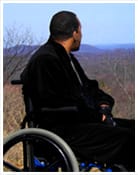Nursing home neglect is a distressing issue that affects the well-being of many elderly individuals. It’s a problem that can manifest in various forms and is often hard to detect.
Recognizing the signs of neglect is crucial to better ensuring that your loved ones receive the care and respect they deserve.
Unexplained injuries
One of the telltale signs of nursing home neglect is the presence of unexplained injuries. These can include bruises, cuts or fractures. They often result from falls, rough handling or a lack of assistance in daily activities. If you notice unexplained injuries, seeking explanations is essential.
Bedsores
Bedsores, or pressure ulcers, are a significant indicator of neglect. They occur when a person is left in one position for too long, causing pressure on specific areas of the body, particularly on bony areas. Bedsores can range from mild redness to severe wounds exposing underlying tissues. They often require medical attention without delay.
Poor personal hygiene
Proper personal hygiene is a basic need that nursing homes should fulfill. Neglect may be affecting a loved one if they consistently has poor hygiene, such as unwashed hair, dirty nails or an unclean appearance. This could indicate that the staff isn’t providing adequate assistance with bathing, grooming and other personal care tasks.
Rapid weight loss or malnutrition
Rapid weight loss or signs of malnutrition are severe concerns in a nursing home setting. They can occur due to a lack of proper nutrition or the resident’s inability to eat without assistance. Staff members should be available to assist with meals and monitor the intake and output of residents showing signs of nutritional troubles.
Psychological distress
Psychological distress is another crucial sign of neglect. This can manifest as anxiety, withdrawal, or depression. It might be a response to neglect or mistreatment. Changes in behavior, mood or emotional state can signal that something is wrong in the care environment.
Recognizing these signs is the first step to protecting your loved ones. It’s vital to address concerns promptly and thoroughly. If you suspect neglect, speaking up and seeking proper medical and legal intervention is essential to uncover the truth and prevent future mistreatment.

